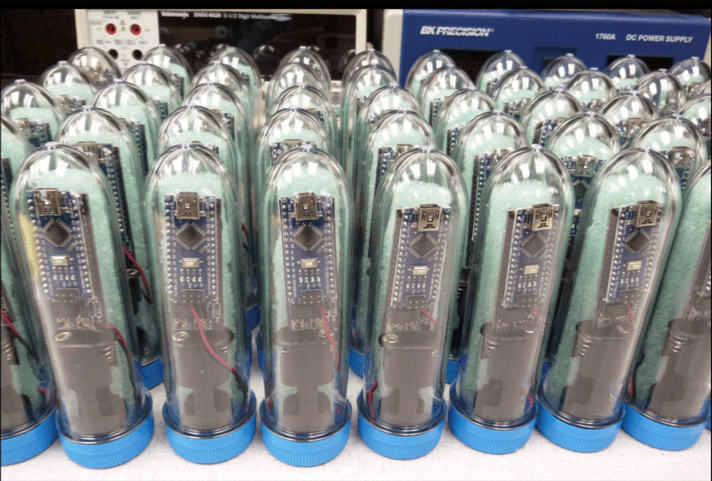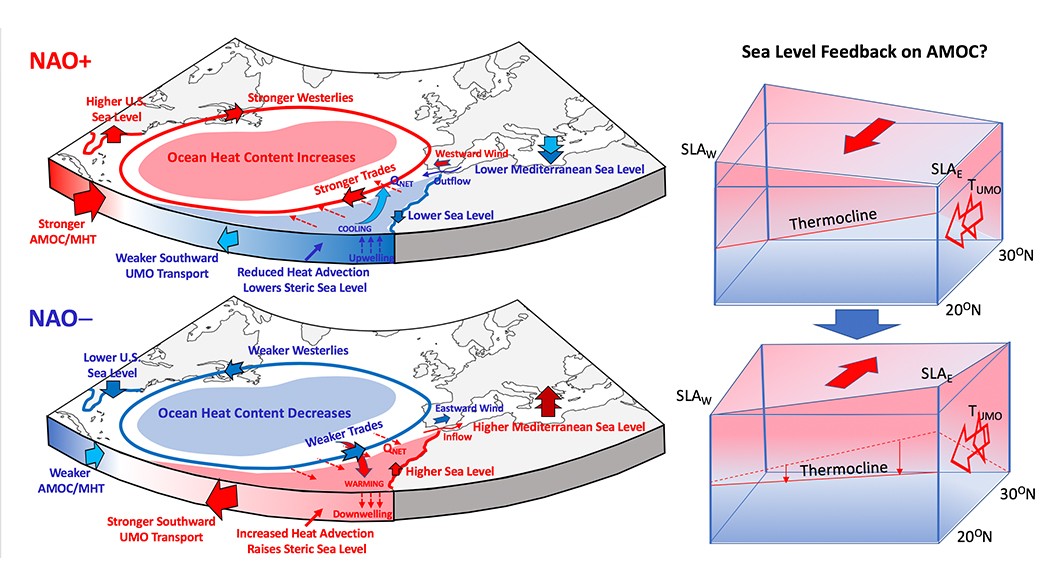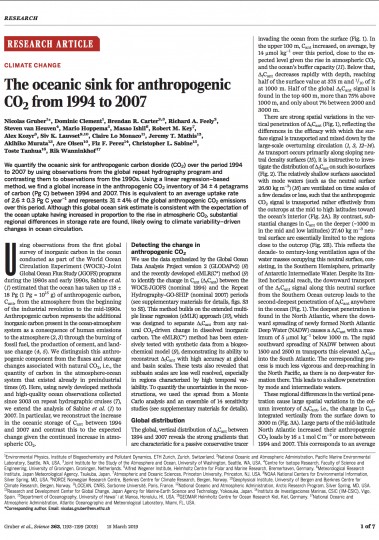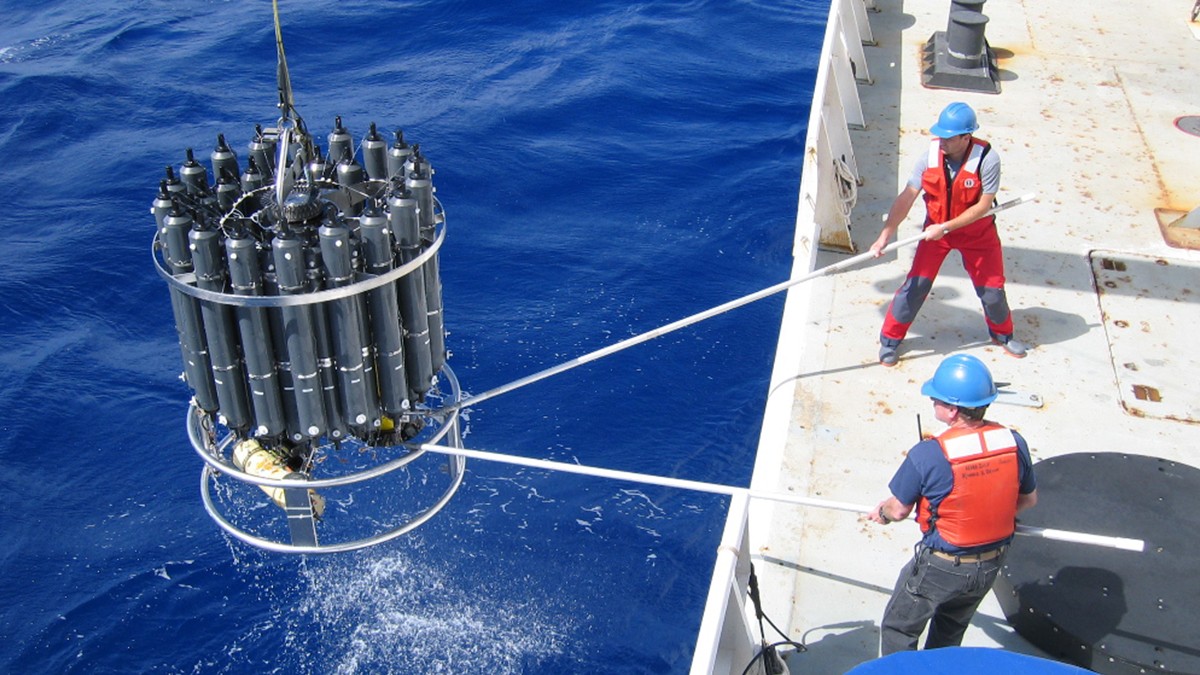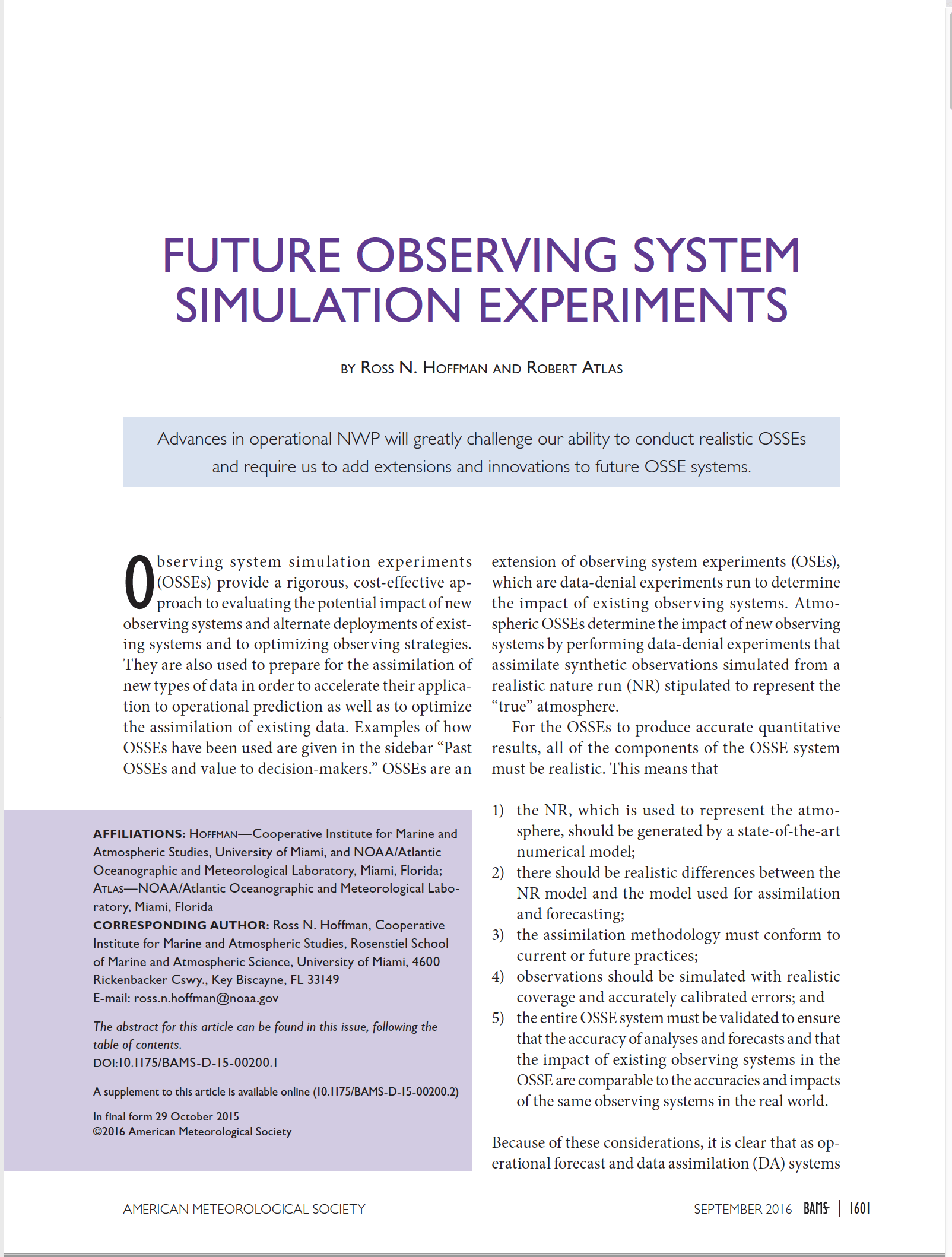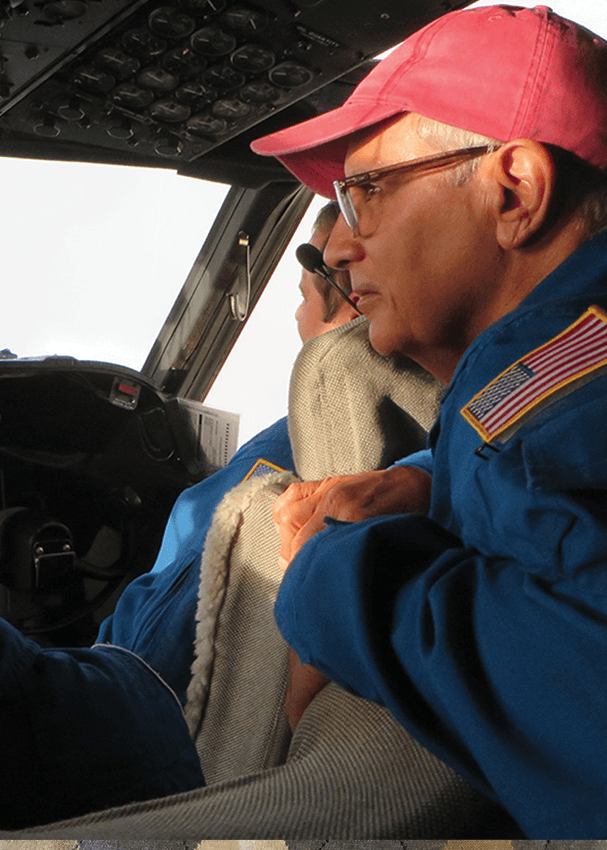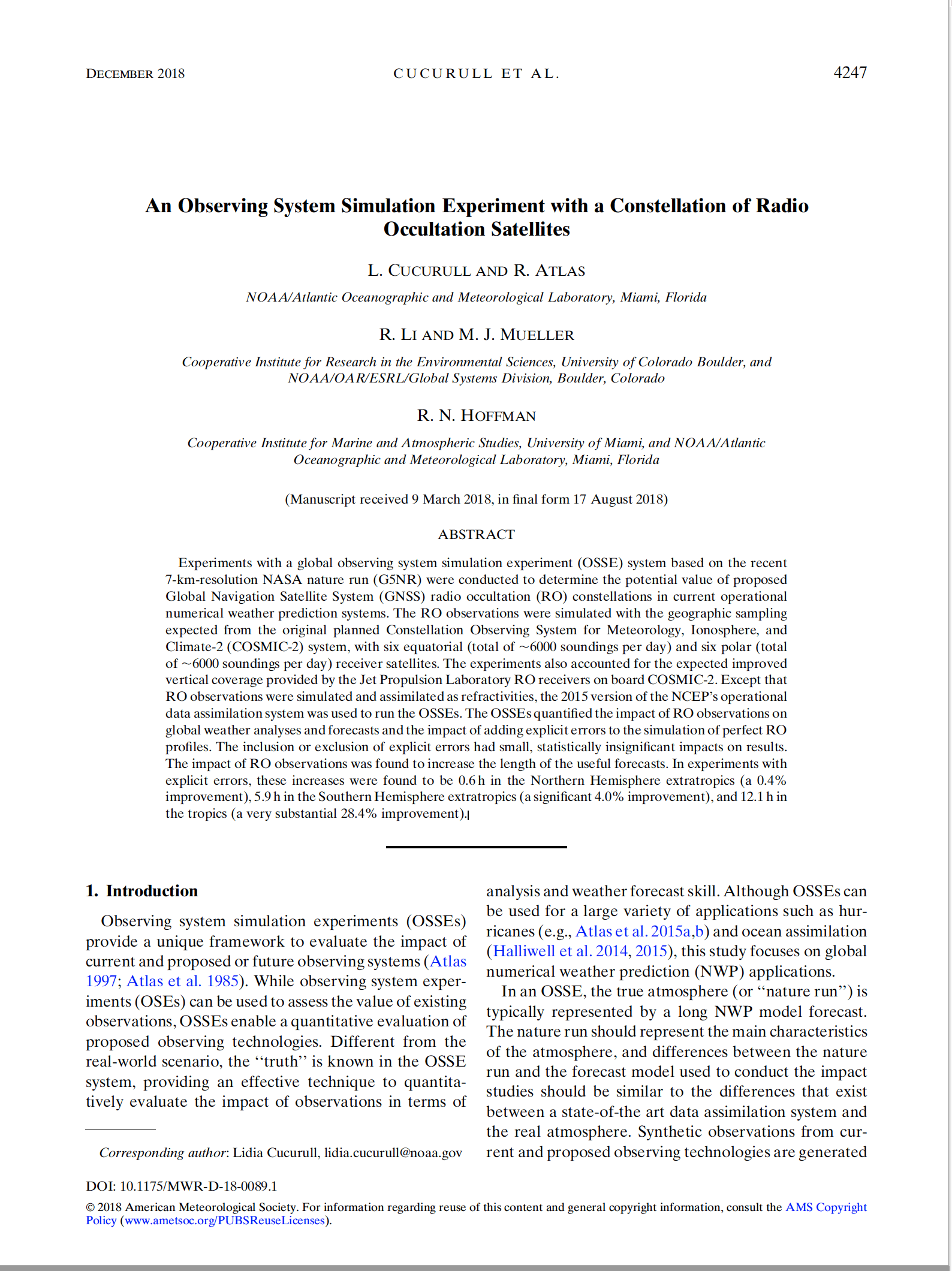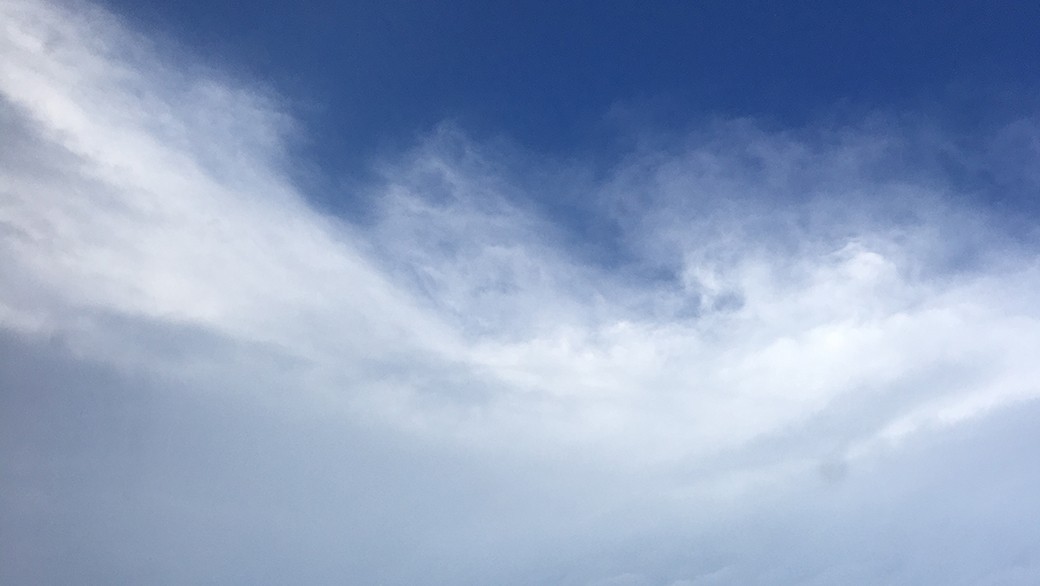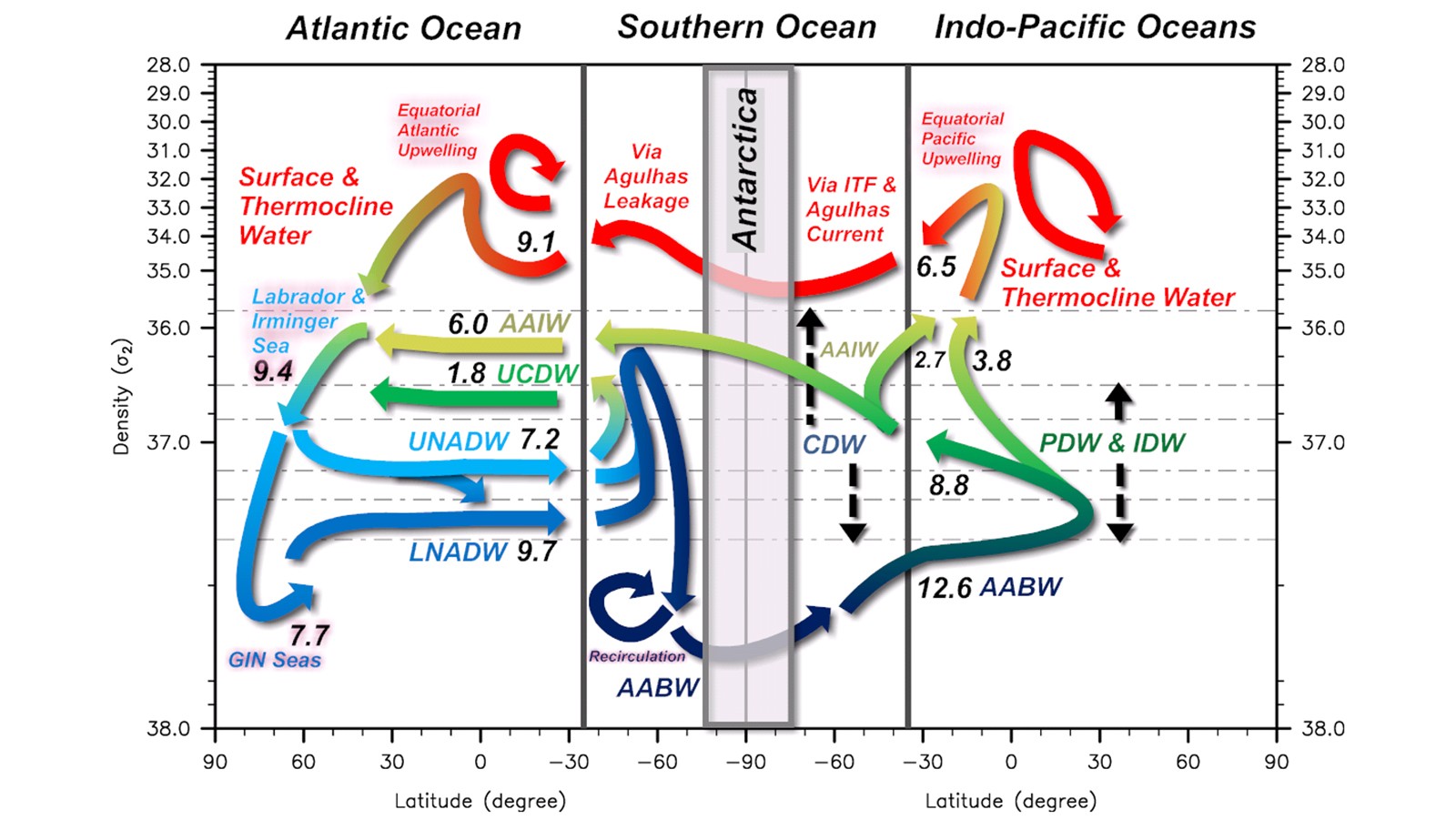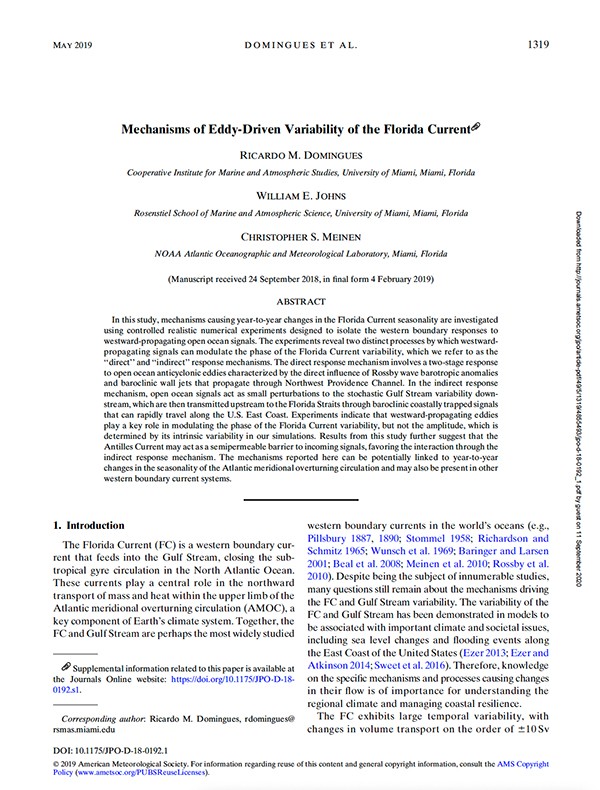Gruber, N., Clement, D., Carter, B. R., Feely, R. A., van Heuven, S., Hoppema, M., … & Monaco, C. L. (2019). The oceanic sink for anthropogenic CO2 from 1994 to 2007. Science, 363(6432), 1193-1199.
Abstract:
We quantify the oceanic sink for anthropogenic carbon dioxide (CO2) over the period 1994 to 2007 by using observations from the global repeat hydrography program and contrasting them to observations from the 1990s. Using a linear regression–based method, we find a global increase in the anthropogenic CO2 inventory of 34 ± 4 petagrams of carbon (Pg C) between 1994 and 2007. This is equivalent to an average uptake rate of 2.6 ± 0.3 Pg C year−1 and represents 31 ± 4% of the global anthropogenic CO2 emissions over this period. Although this global ocean sink estimate is consistent with the expectation of the ocean uptake having increased in proportion to the rise in atmospheric CO2, substantial regional differences in storage rate are found, likely owing to climate variability–driven changes in ocean circulation.
View PDF Article or read the NOAA Post.
